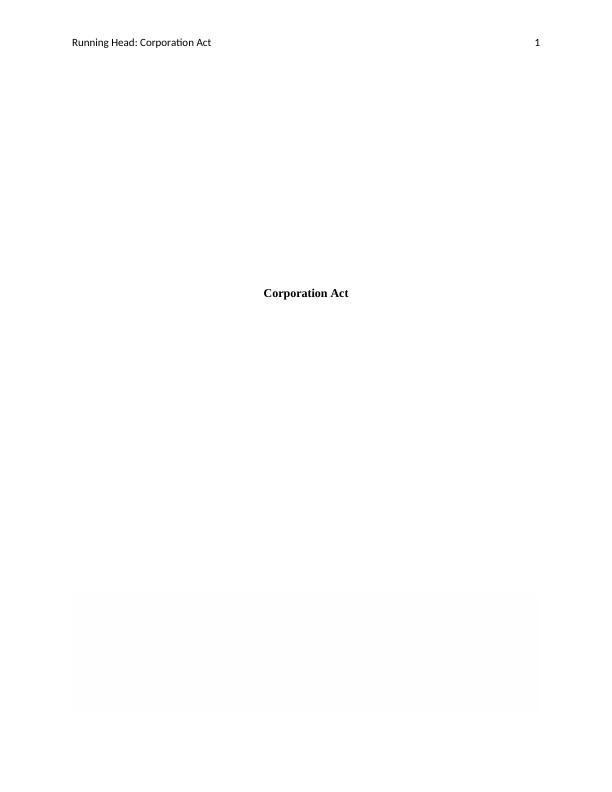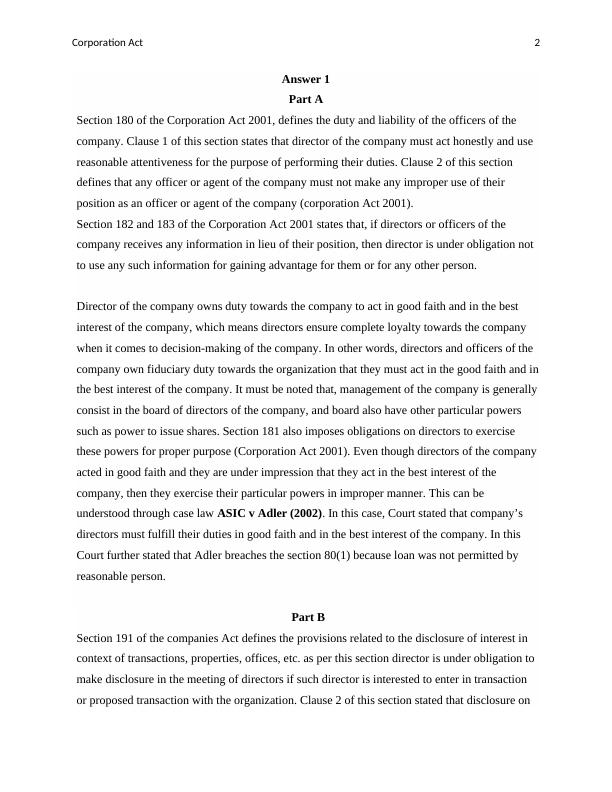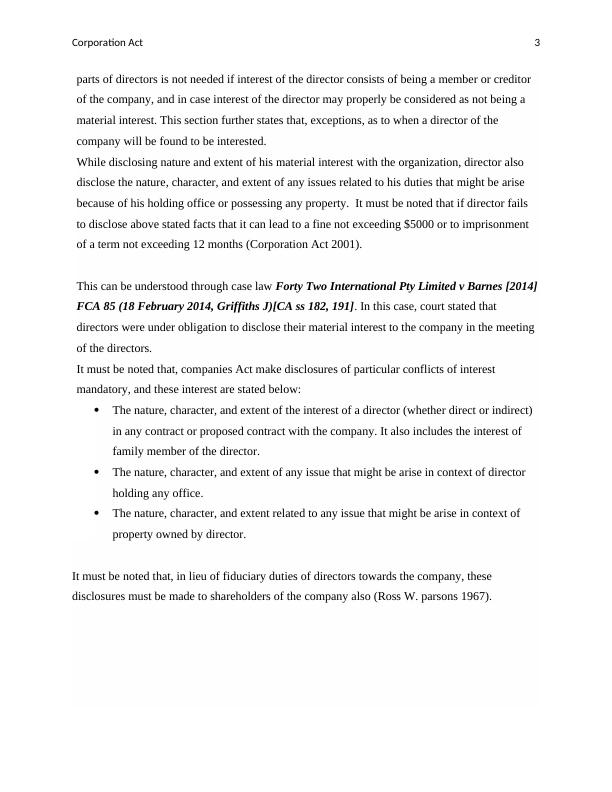Corporation Act: Duties and Liabilities of Company Officers
Explain the meaning of director's fiduciary duties of good faith and proper purpose, including parties to whom the duty is owed and compliance with the Corporation Act.
6 Pages1708 Words464 Views
Added on 2023-06-13
About This Document
This article discusses the duties and liabilities of company officers under the Corporation Act, including the obligation to act in good faith and in the best interest of the company. It also covers the disclosure of interest in transactions, properties, and offices, and when directors can be held personally liable for company debts and losses.
Corporation Act: Duties and Liabilities of Company Officers
Explain the meaning of director's fiduciary duties of good faith and proper purpose, including parties to whom the duty is owed and compliance with the Corporation Act.
Added on 2023-06-13
ShareRelated Documents
End of preview
Want to access all the pages? Upload your documents or become a member.
Commercial Law Case Studies: Breach of Director's Duties
|9
|2938
|481
The Company by Corporation Act 2001
|11
|2496
|59
Corporate Law Case Studies: Breach of Director's Duties under Corporation Act 2001
|11
|2987
|178
Duty of Good Faith in Company Law
|10
|2728
|82
Understanding the Duties and Responsibilities of Directors in Company Law
|6
|1743
|293
Role of Good Faith and Proper Purpose in Company Law
|11
|2797
|175



